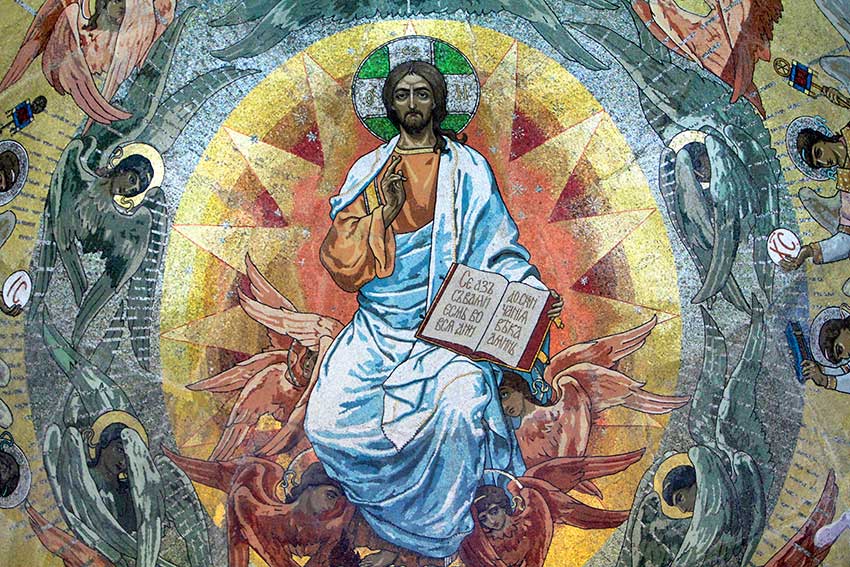
Editorial
What is the minimum degree of assent to the life and teachings of the Catholic Church required to participate in its institutions? A dismal question, and one we’d rather not have to ask.
The Northern Territory Attorney-General Chansey Paech, in his letter to Bishop Charles Gauci, gave his government’s answer in the context of reforms to the NT Anti-Discrimination Act. Whether it is appropriate for a government to have a view on such an issue is beside the point; this is what has happened. The repeal of section 37A will remove the ability of a religious school to discriminate against a staff member or job applicant on the basis of their “religious beliefs or activities”. But a religious school will still be able to require its employees, as part of their job description, to lead prayer or deliver pastoral care, Mr Paech wrote.
One is reminded of the stinging description in 2 Timothy 3:5: a form of godliness, but the denial of its power. Now in the NT whether a teacher believes is inadmissible, as long as they are prepared to go through the motions. As Bishop Gauci wrote in his reply to Mr Paech, the remaining exemptions “will not permit our doctrines, tenets, beliefs or teachings to be imposed upon employees as ‘a genuine occupational requirement’.” The Church’s perennial teachings on anthropology and the meaning of marriage are two such beliefs. In the view of the NT government, the Church should no longer be entitled to require its people to profess and uphold these teachings.
Bishop Gauci has fought hard against these “reforms”, and will seriously consider whether the schools can remain viable. For him to do anything else would be to risk the other doctrines of the Church, in time.
For instance, is adherence to the definition of Chalcedon – that Jesus Christ is two natures in one person – a genuine occupational requirement for a Catholic school principal or religious education co-ordinator? If not, should the Church be required by law to employ monophysites as principals of its schools? In the NT this may well now be the case, pending the inevitable litigation.
Perhaps from the perspective of anti-discrimination law the question of whether Christ has two natures is irrelevant. But Chalcedon is a far more foundational doctrine for the Church. Upon it all our teaching about the human person rests. If the government objects to the subsidiary teaching on human anthropology and sexuality, in time they will object to the foundational teaching on the Incarnation. So although the NT might be small beer for many Catholics in Sydney, the dispute in Darwin shows that the religious issue in Australia is quickly coming to a head.
After the abject failure of the Morrison Government’s religious freedom legislation, Labor has commissioned a raft of new reviews of anti-discrimination law at both the Federal and State levels. To put it generously, none of these reviews seem likely to expand the Church’s sphere of freedom to teach its doctrines. If the upcoming Federal and NSW law reform commission reviews don’t diminish or dilute existing freedoms, it won’t be because of the truth or goodness of our faith, but because Parliamentarians and lawyers are committed to pluralism, or respect for rights, or recognise that it’s not a vote-winner in key seats. Certainly some minimum in law and policy must be set. But as long as Catholics insist that the question going forward is one of balancing rights, or values, or minimums, we will find ourselves asking which doctrines we are capable of living without, rather than living by.
What is the minimum degree of assent to the life and teachings of the Catholic Church required to participate in its institutions? In the absolute the doctrine and theology of the Church are not reducible to a question like this, regarding occupational requirements, or rights, or one option among many. Neither are its liturgical services, traditions of pastoral and spiritual care, institutions of charity, or moral teachings.
They are, in fact, the life of the Church, and taken together they are the life in Christ in this age. (One wonders whether life is just another occupational requirement too, for politicians.) And Jesus Christ comes to give life to the full, not bare life, not a minimum of life.
So as the religious issue sharpens around Australia over this summer, and into the next year, it’s time to change the frame. Instead of looking for minimums, let’s seek the maximum, the most expansive, the richest, the most meaningful, the most glorious, the holiest, the essential – even the super-essential – in our faith.
The cup spilling over, the pearl of great price, the fields ripe for the harvest, the treasury full of gifts new and old, the deluge of blood and water from the side of the Lord. That is what God gives, how God gives – not as the world gives.
This editorial appeared in the 27 November edition of The Catholic Weekly
